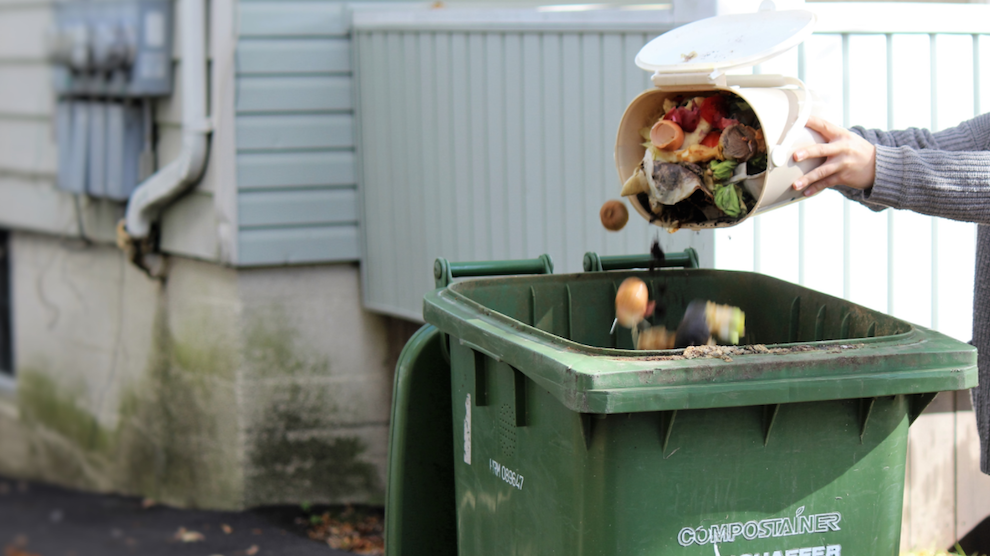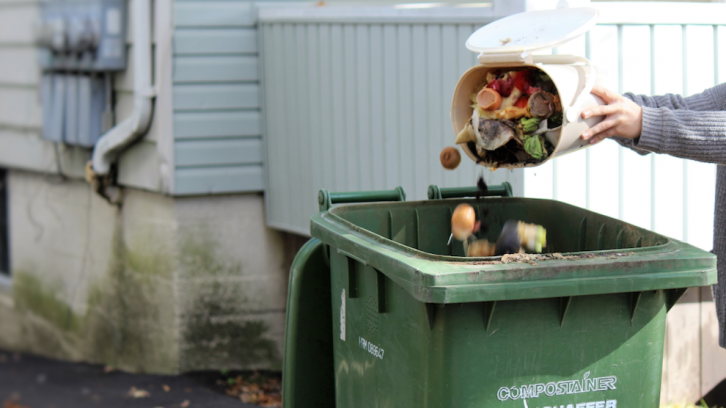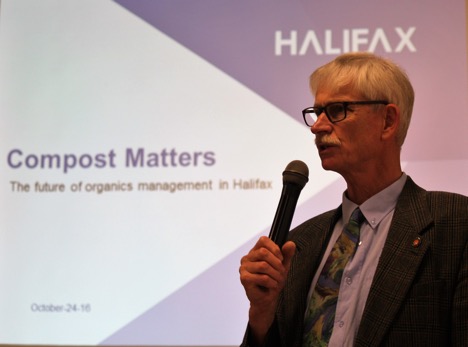Environment
Halifax back to drawing board on compost program
‘We’re going to the public and then we’re going to develop a plan’

caption
From private homes and businesses, HRM collects more compost than it can process. City staff consult public to find a new compost plan.
caption
HRM collects more compost than it can process. City staff is consulting the public to find a new compost plan.
The two facilities used to process compost opened 17 years ago. They are getting old and the municipality has grown: they can process 50,000 tonnes of organic matter each year but they’re collecting 53,000 tonnes. A private company, Fundy Compost, processes the excess.
Upgrades are also needed to follow changing federal and provincial standards for composting material. Solid Waste Resources, the HRM department in charge of garbage, recycling and compost, hopes the city can meet these guidelines in four to five years.
No decisions have been made yet about how the upgrades will take shape.
“Everything is on the table,” says Marcel Maessen, education officer for Solid Waste Resources.

caption
Marcel Maessen moderates public consultation about Halifax’s compost plans at the Dartmouth Sportsplex.This week, Solid Waste Resources hosted an information session on the future of composting in the city.
“Unlike a lot of engagements in the past where staff develop a plan then go to the public, we’re going to the public and then we’re going to develop a plan,” says Matt Keliher, manager at Solid Waste Resources.
Residents came forward with different ways they believe that compost should be handled, including David Wimberly, a member of the community group Transition Bay. He’s been involved in shaping the way the municipality deals with compost since the late 1980s.
In 1998, HRM was the first large municipality in Canada to introduce curbside organics collection.
Wimberly believes that composting should become a more community-based activity. He thinks the city should expand the already existing backyard composter program.
Ideally, he’d like local environmental and social-action groups to play a larger role in the municipality’s compost program. This way, whole communities could be educated and set up networks of backyard composters.
“We need to focus on how citizens and individual businesses can manage organic waste in way that it becomes an organic resource and something that people wouldn’t dream of giving the city,” says Wimberly.
“We promote it, we want residents to do it, but it can’t be the final solution to managing 50,000 tons” of compost, he says.
Solid Waste Resources also wants residents and businesses to give their input in an online “Compost Matters” survey.
So far, the department has received more than 600 surveys online. The survey covers many aspects of what residents and businesses want from the composting system.
Solid Waste Resources will collect residents’ input until December through the surveys and other meetings with members of the public and stakeholders.
[idealimageslider id=”15773″]
Early next year, Solid Waste Resources will report its findings to Halifax regional council.
The next public Compost Matters meetings are at the Halifax Forum on Wednesday, Nov. 2 from 3 to 5 p.m. and 6 to 8 p.m.. Residents can complete the survey and find more information at www.shapeyourcityhalifax.ca/compost-matters.
